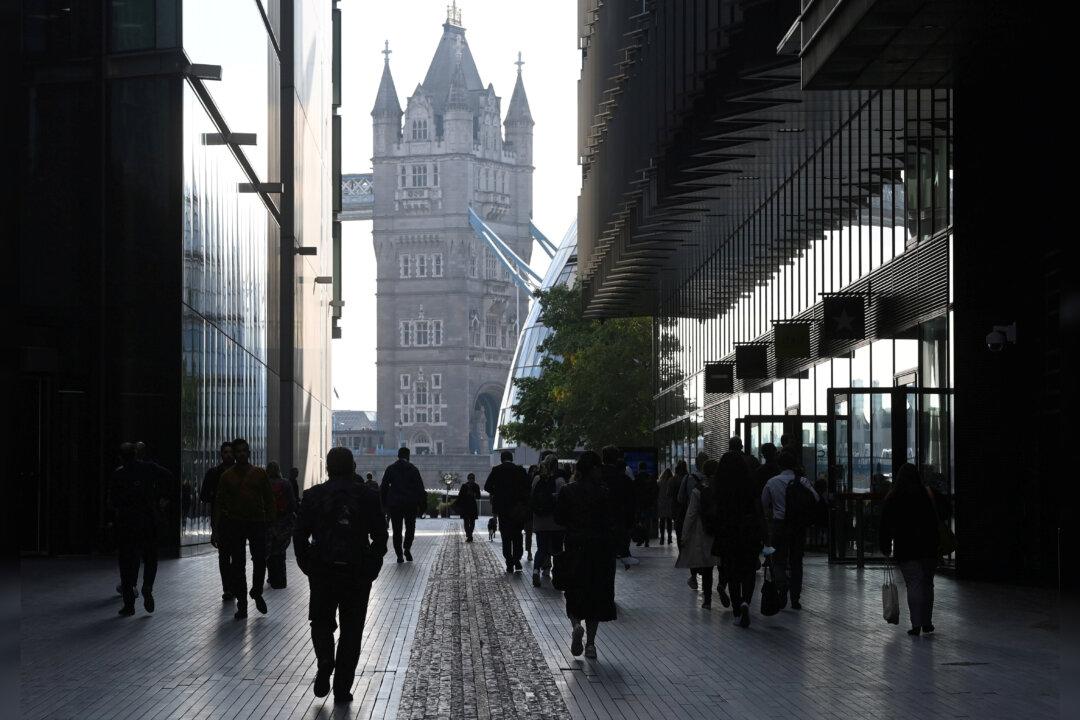LONDON—Britain’s economy unexpectedly regained momentum in October, despite surging costs and mixed consumer signals, according to surveys on Friday that could tempt the Bank of England (BoE) to raise interest rates for the first time since the pandemic.
The preliminary “flash” IHS Markit/CIPS Composite Purchasing Managers’ Index rose by the largest amount since May to hit 56.8, up from 54.9 in September. By contrast, a Reuters poll of economists had pointed to a further slowdown to 54.0.





